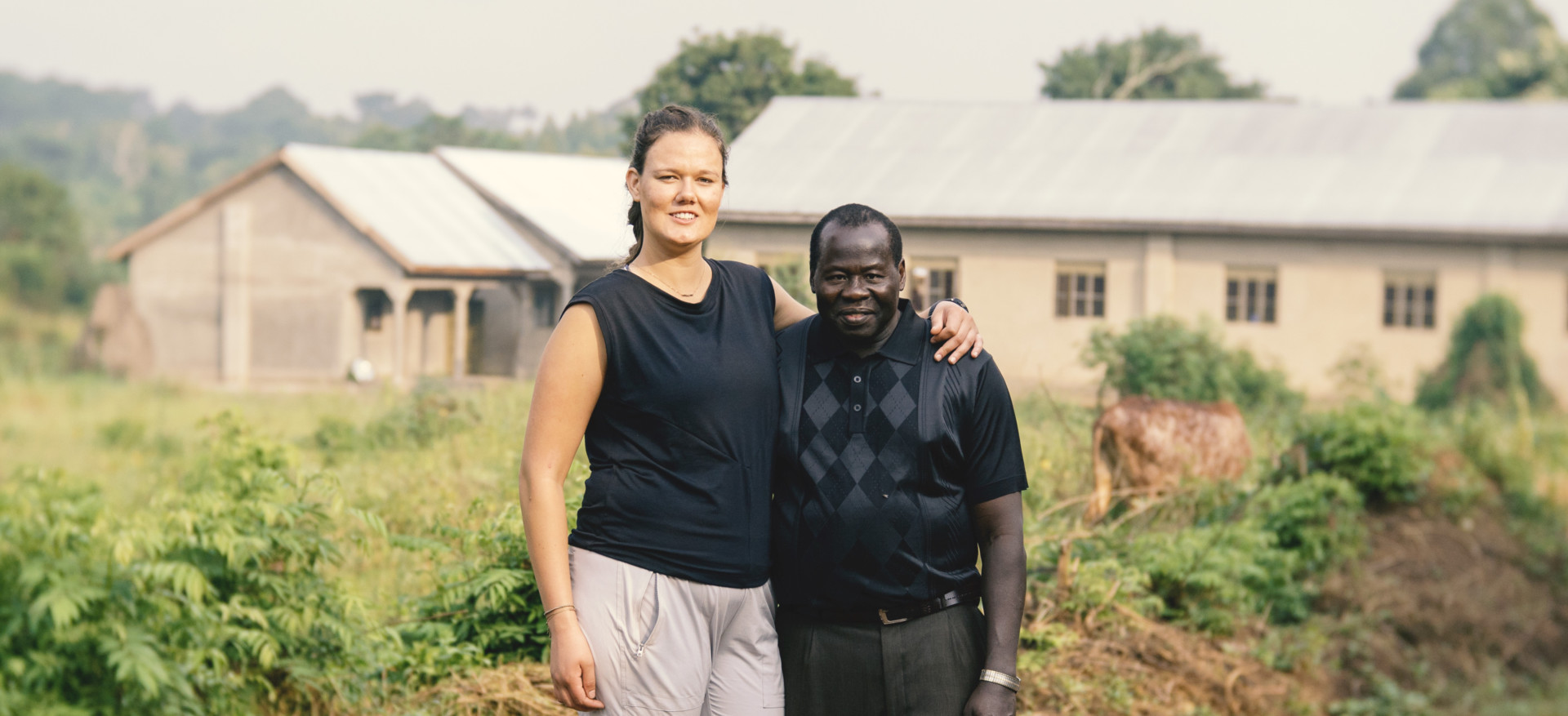
Laura Schreck, left, and Robert Serunjogi struck up a conversation on campus in spring 2015. It resulted in an ongoing fundraising effort that has generated more than $70,000 to build a school for orphans in Uganda.
A project to construct school buildings for orphans in a Uganda village – started by a Colorado State University custodian and student more than seven years ago – has not only survived the pandemic but expanded, and fundraising continues for additional improvements.
The collaboration started when CSU alumnus and custodian Robert Serunjogi struck up a conversation with then-undergraduate Laura Schreck in the Engineering Building during the spring of 2015. Serunjogi mentioned that he was trying to raise money to build a school in his hometown in Uganda, where AIDS and civil wars had left many orphaned children, and Schreck offered to help him set up a GoFundMe page.
In the years that followed, they raised more than $70,000, funding the construction of several school buildings. And in 2019, a contingent from CSU that included Schreck, Serunjogi and Little Shop of Physics leaders traveled to the Ugandan village to deliver materials for hands-on science experiments and other learning activities. CSU videographer Brian Buss went along as well, gathering footage for an award-winning documentary about the project, Robert’s Village.
These snippets of video, taken with a phone, capture scenes from the school during Serunjogi’s last visit to Luweero, Uganda, in January 2022. Edited by Ron Bend
Recent improvements
The school was shuttered during much of the pandemic, but since 2019, the Little Shop of Physics has raised more than $15,000 of that $70,000 from sales of science toys and equipment, fundraising events and individual donations. Serunjogi said that money was used to dig a temporary water well at the site, so that drinking water doesn’t have to be hauled from another borehole that’s a half-hour walk away.
The funding also helped cover teacher salaries and the addition of a gutter system. A Little Shop of Physics fundraiser brought in $600 to buy cisterns to collect rainwater from those gutters. Serunjogi, who earned his bachelor’s degree in political science from CSU, said that outstanding needs include a $10,000 permanent water well with a deeper borehole and a solar collection system to charge batteries that could provide power for lights and other utilities. Convincing the government to run electricity to the schools is the long-term goal.
Other enhancements that have been made over the past three years include a new block of classrooms, improved and expanded latrine/urinals, a small kitchen building with lodging for a caretaker, as well as a veranda and bench for sitting in the shade along one building’s wall. As Serunjogi proudly shows photos of the improvements, he lists other things that the school needs, including desks, bunk beds, a perimeter fence and light sockets/wiring.
Donations can be made online.
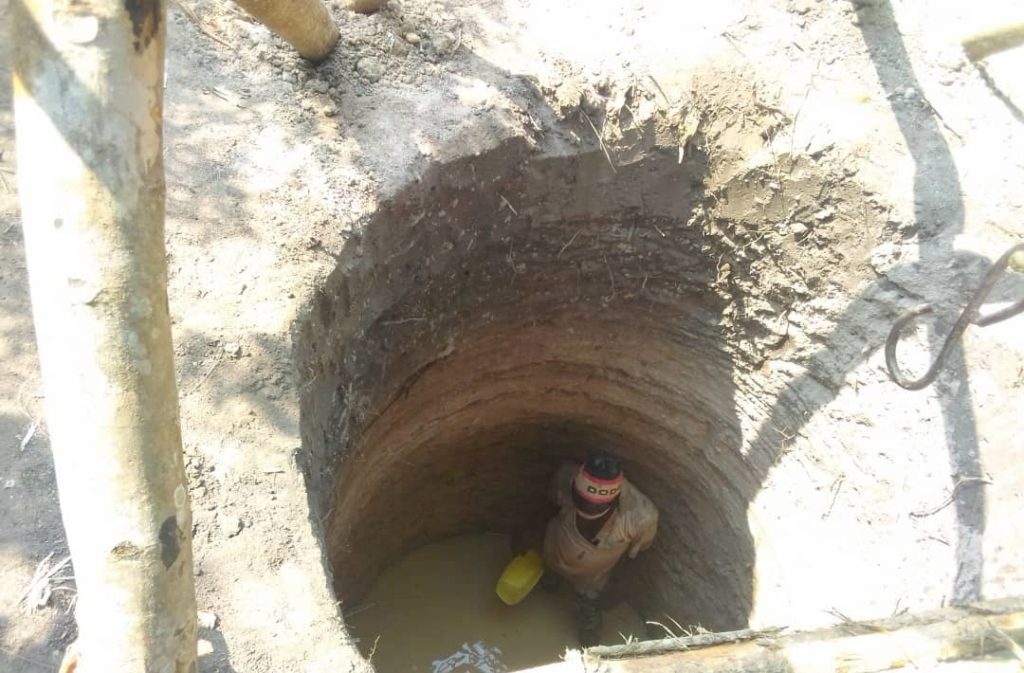
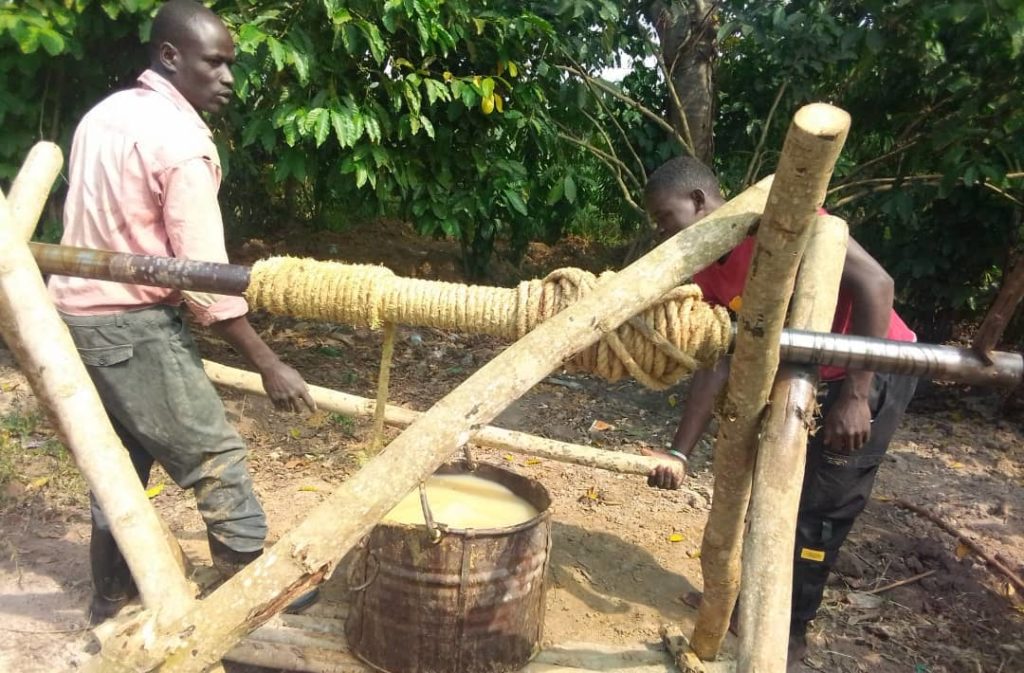
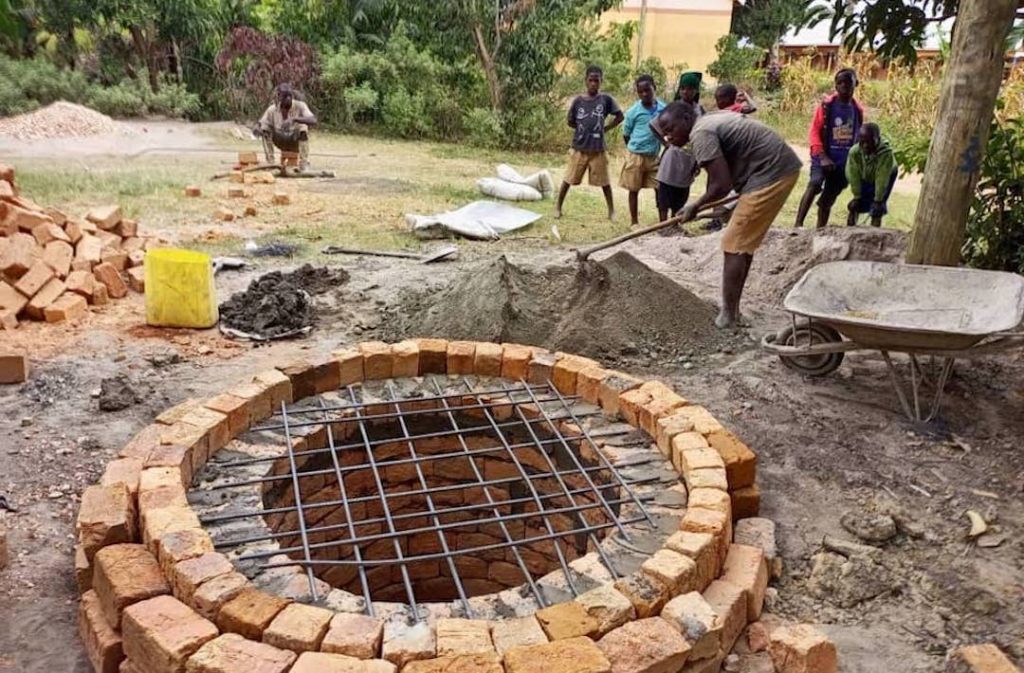
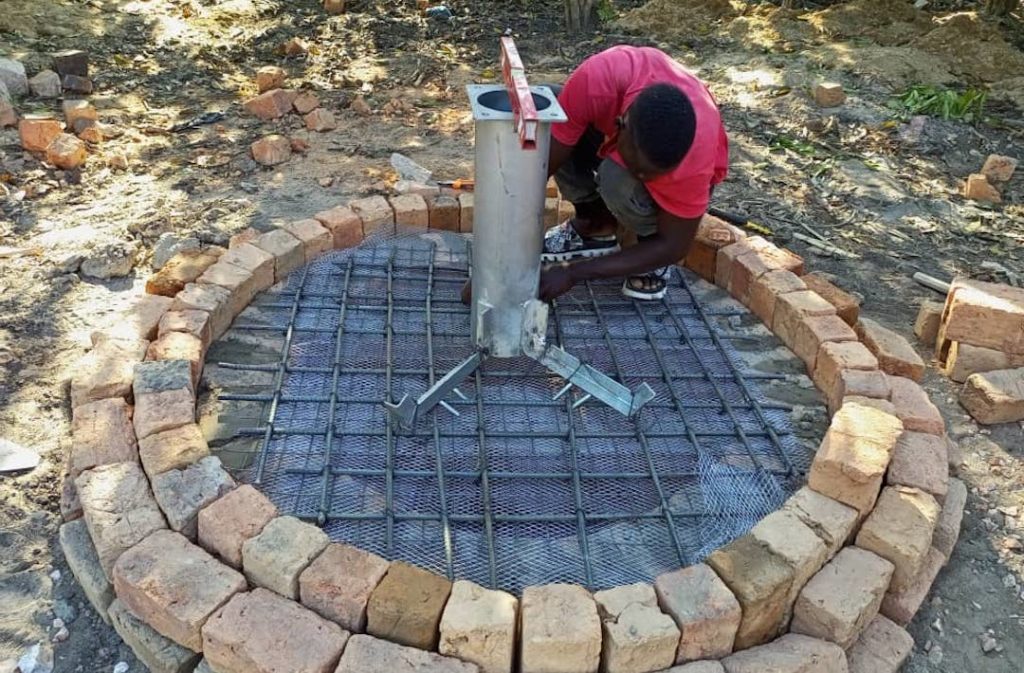
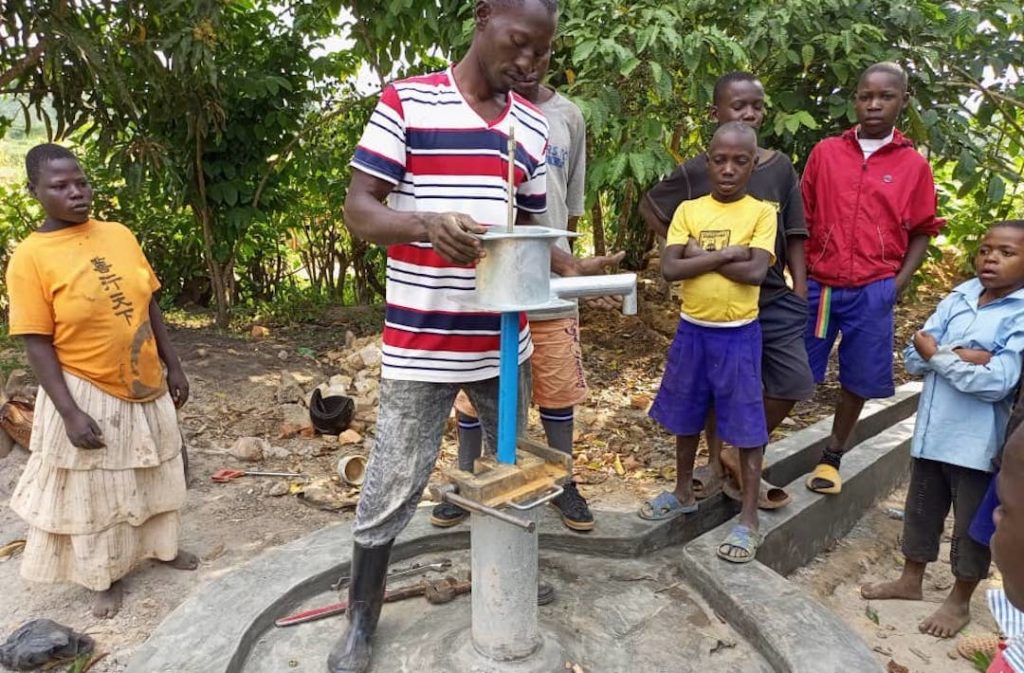
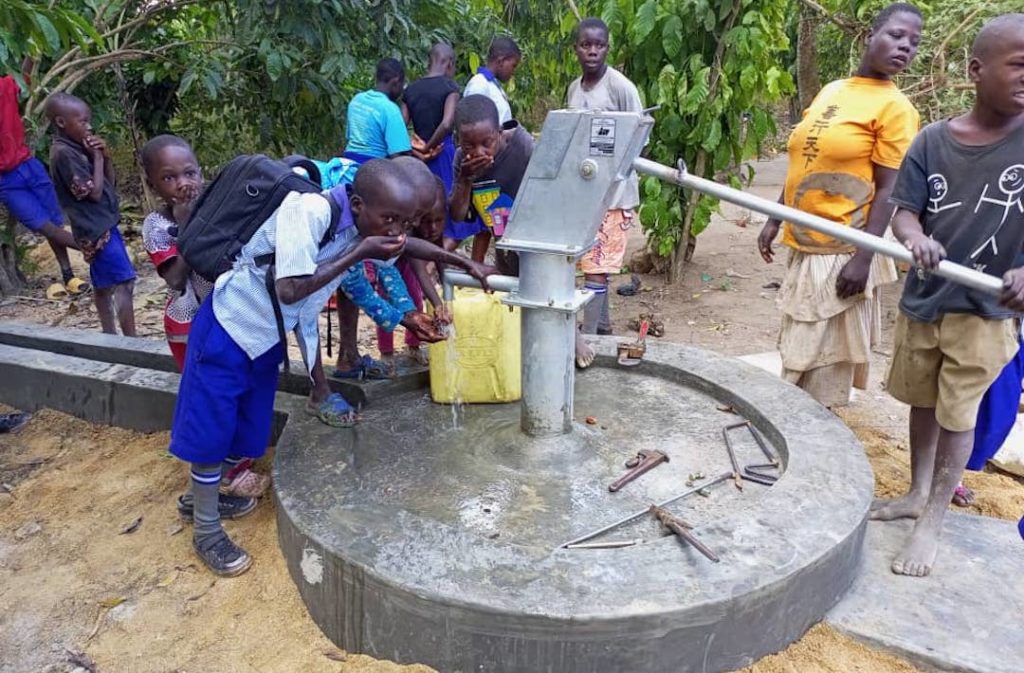
Construction of a temporary water well at the school eliminated the need to walk a half hour to another borehole, but funding is still needed for a deeper, permanent well.
Donations have lasting impact
Little Shop of Physics founder Brian Jones, who was part of the team that traveled to Uganda in 2019, said a donation of only $50 will educate, feed and house a child there for a year.
“I don’t know where else you can donate and have your money go further,” he said, adding that it costs about $10,000 a year to pay the teachers and feed as many as 200 children.
The Little Shop of Physics has committed to raising at least $5,000 a year by selling science equipment and holding fundraising events. At its next big event, the Spring Science Extravaganza in April, those who attend can purchase a grab bag of cool science gadgets knowing that 100% of the money they spend will go to support the school.
Jones is hoping to return to Uganda in 2024, bringing CSU undergraduate students with him.
Buss, whose documentary won “Best Short Documentary Award” at the Julien Dubuque International Film Festival last spring, plans to return to Dubuque, Iowa, with Serunjogi in April for another screening of the documentary to kick off next year’s festival.
Buss said that future plans for the school include adding dorms, a cafeteria and a small house, where Serunjogi can stay when he visits. Buss has become close friends with Serunjogi, and they often have dinner together.
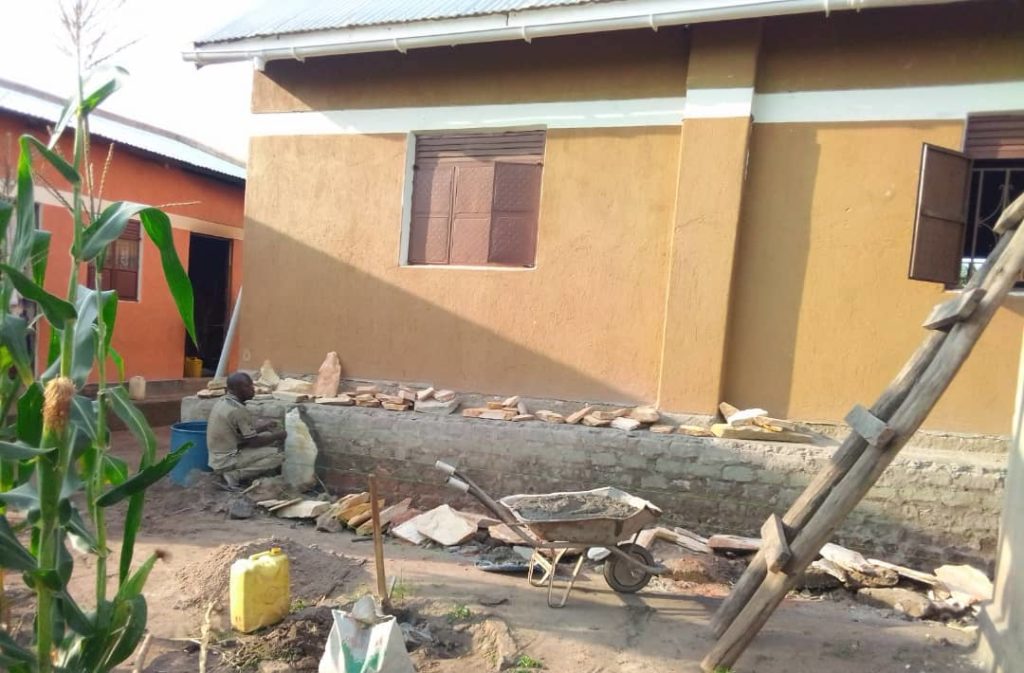
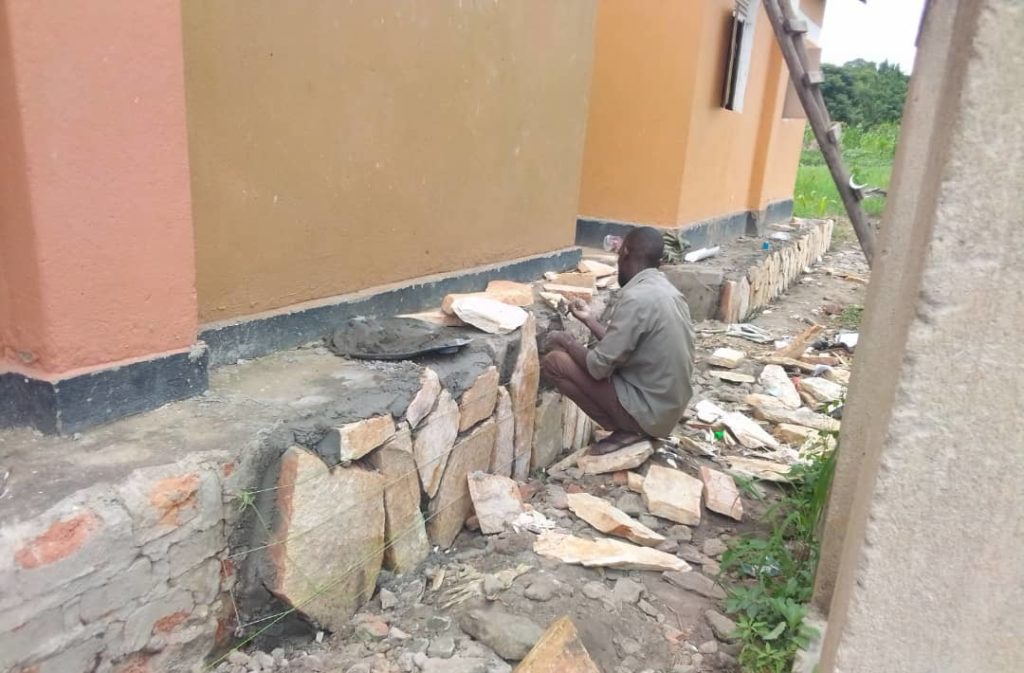
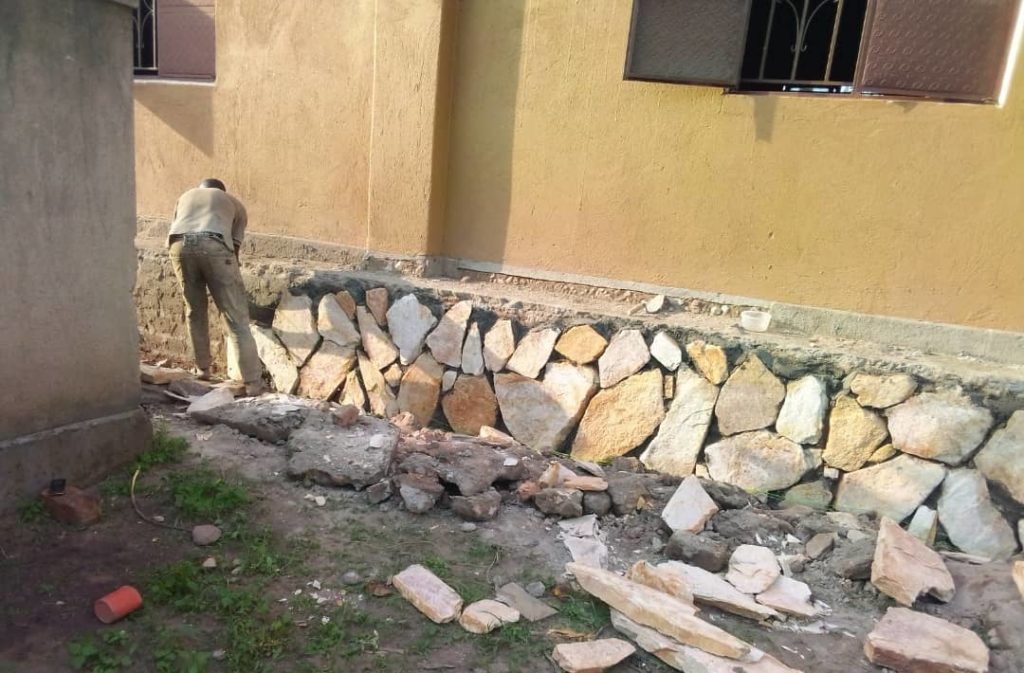
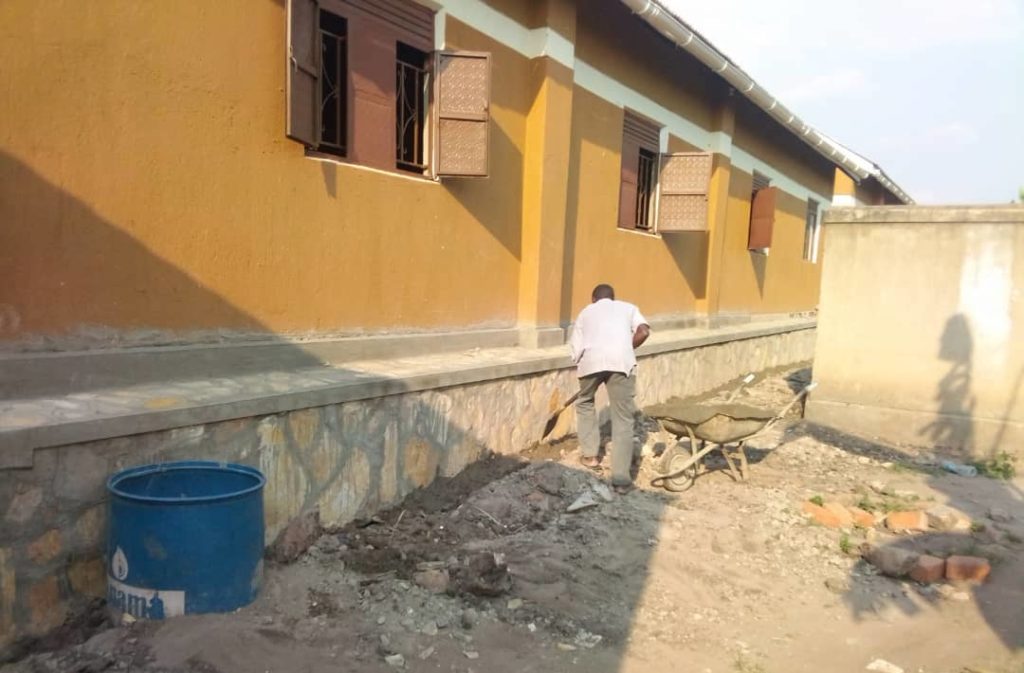
Thanks to fundraising by the CSU team, a bench was constructed along one of the building’s walls for sitting in the shade.
From CSU to medical school
Laura Schreck (’17, ’19), who holds undergraduate and master’s degrees in health and exercise science from CSU, is now pursuing MBA and Doctor of Osteopathic Medicine degrees at Rockhurst University and Kansas City University, respectively, in Joplin, Missouri.
She said she chose a program that emphasizes rural medicine because it will benefit her in the future when practicing medicine globally. She is seeing photos in her textbooks of rare diseases predominantly found in Africa – including some she witnessed firsthand. Once she earns her medical degree, she sees herself practicing in Africa a couple of times a year because of her friendship with Serunjogi and her visit to Uganda.
“I know I can have a big impact with all these years of training,” Schreck said. “It does make it easier, as you’re staying up late at night studying, knowing that I’m doing this not just for me, but a lot of other people.”
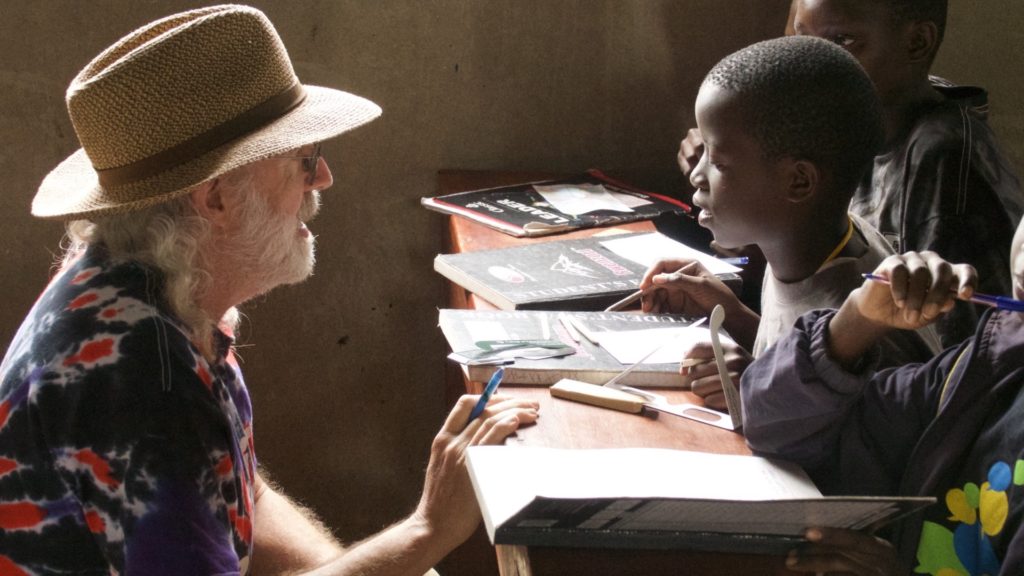
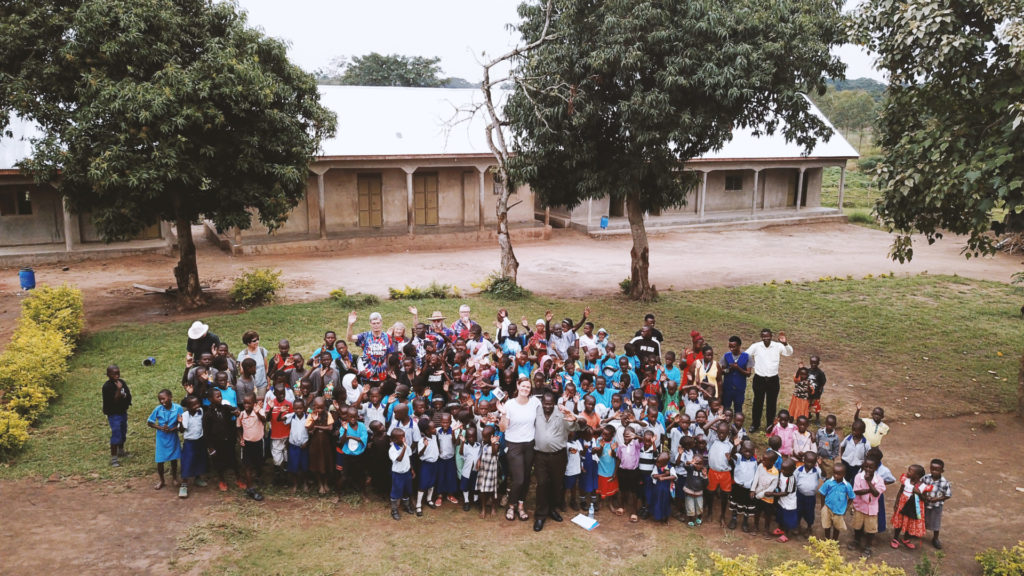
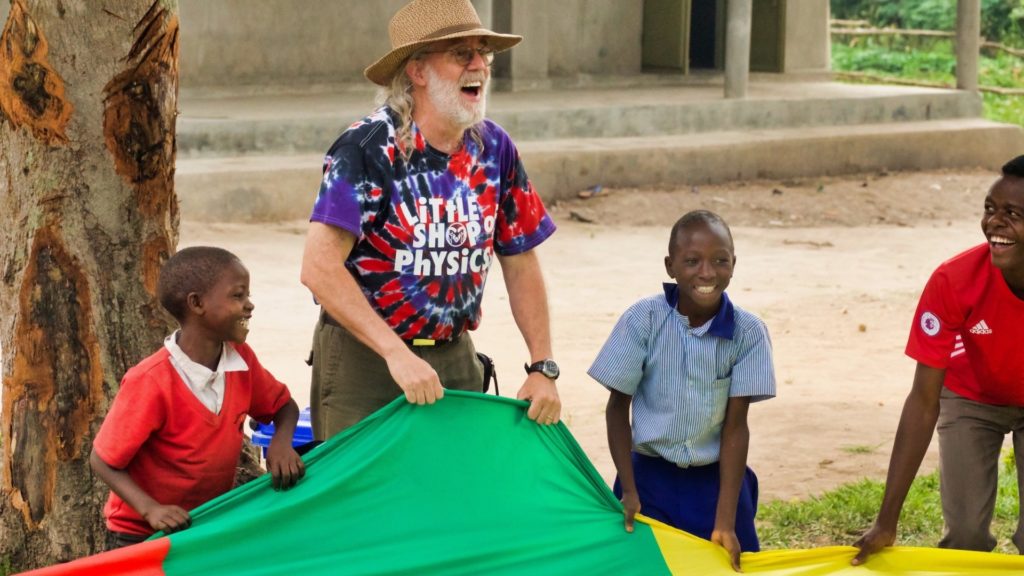
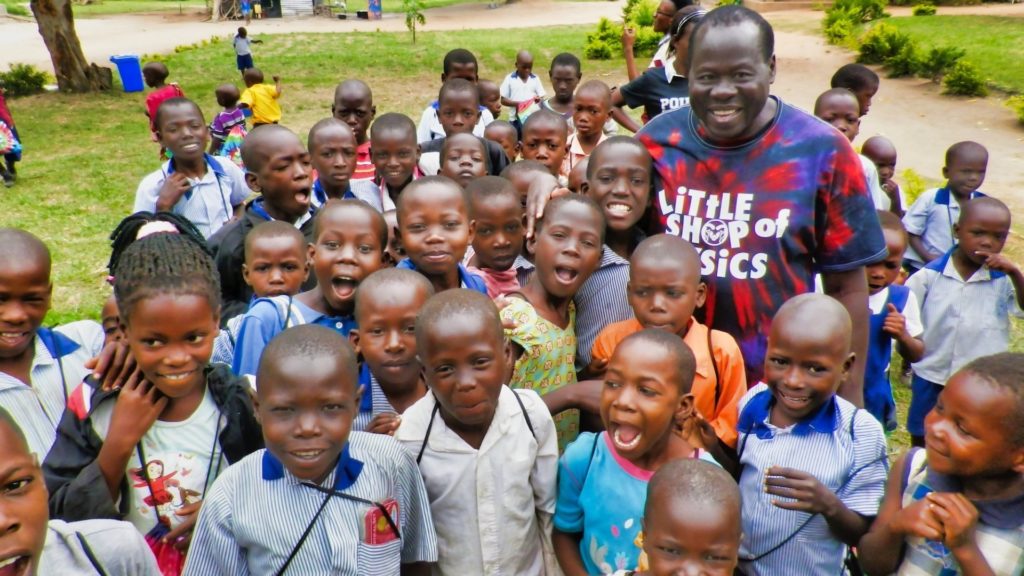
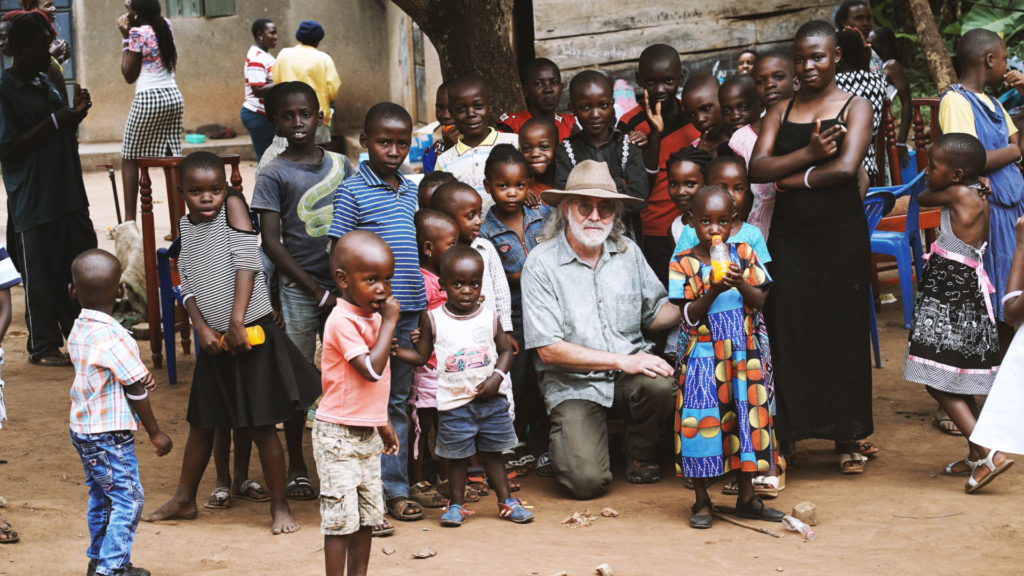
Scenes from the CSU delegation’s visit to the school in 2019. Additional photos and a video can be viewed at a SOURCE package posted that year.
Marshall Fire brings perspective
In late 2021, while home for the holidays in Louisville, Colorado, she fled from the Dec. 30 Marshall Fire, which completely destroyed her childhood home. She draws parallels between that experience and the orphans she met in Uganda.
“There are all these kids who are born in remote village huts, without any documentation, and no one knows what it’s like,” Schreck said. “It was just interesting to kind of end up in their shoes for a few days, where everything I owned, my presence on this earth, was just wiped in this fire. You wake up the next morning and it’s like, ‘Oh, I don’t even have a toothbrush, deodorant, glasses.’ There really is a difference in having a home and just having a place to live, and some of those kids won’t even get to experience what it’s like to have a place to call home.”
She added: “It’s pretty sobering. And it’s something that I hope most people don’t have to experience. But you know, it does give perspective. And in med school, as I look at the textbooks that pull from African villages for these rare diseases, it’s another fuel. I don’t want people to feel like this, to have this uncertainty and no sense of belonging.”